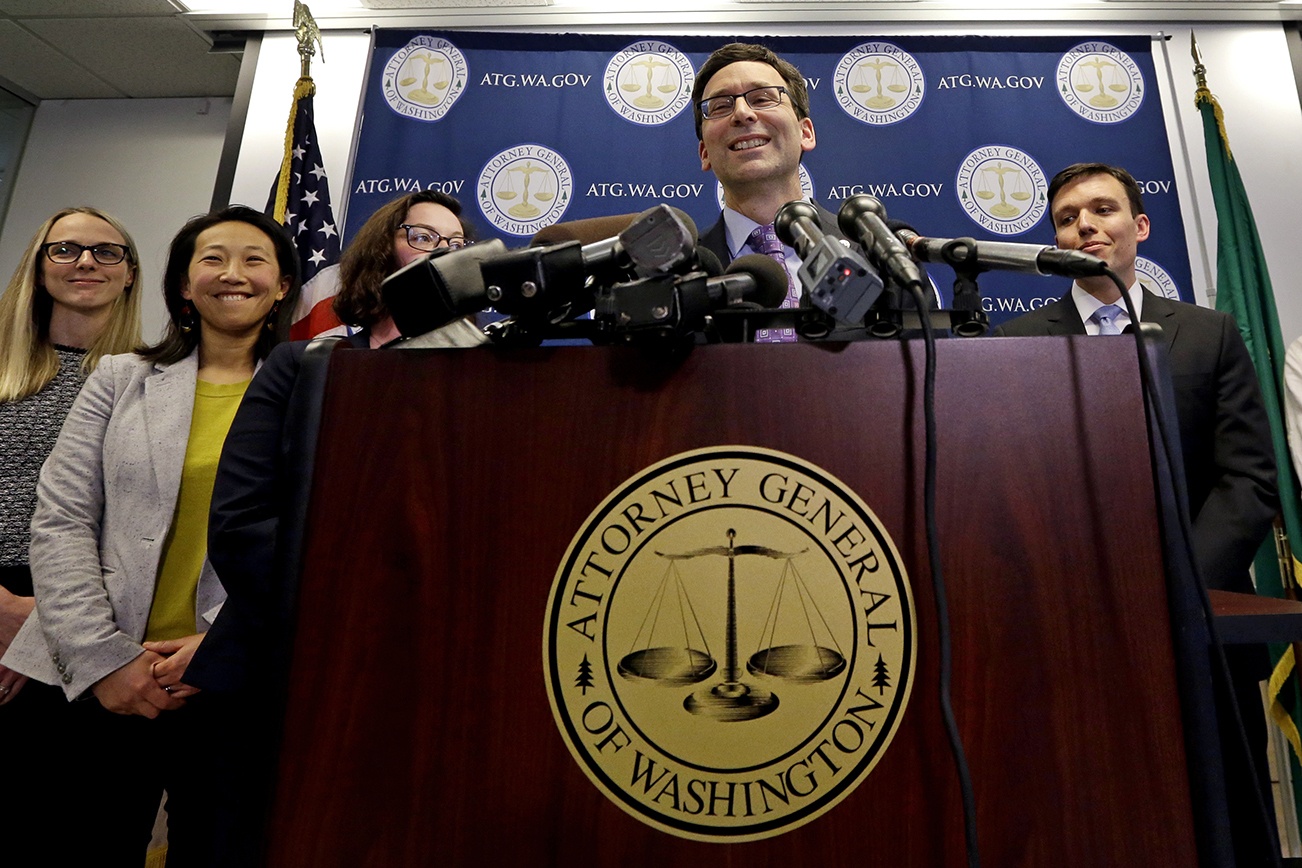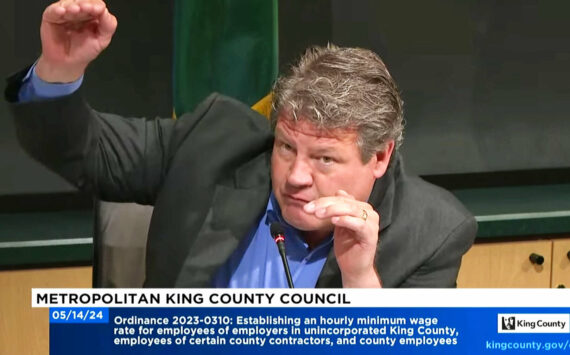The Trump administration released a revised executive order early Monday that bars travel from six Muslim-majority countries instead of seven, among other changes.
A few hours after the release of the new travel ban, state Attorney General Bob Ferguson, who sued the administration over the original travel ban, said that he and his team scored a clear victory in an ongoing battle: The details of the new order suggest Ferguson’s lawsuit forced the administration to concede on many of the arguments he’d raised.
“The revised executive order speaks volumes about the constitutionality of the original executive order,” Ferguson said during a press conference Monday. “The bottom line is, the President has capitulated on numerous key provisions that we contested in court about a month ago.”
Among them:
*The new order now allows people with visas, green cards, and dual citizenship to enter the United States. The previous order barred all citizens of the seven countries — Iran, Iraq, Libya, Somalia, Sudan, Syria, and Yemen — regardless of immigration status or legal permission to travel.
*The new order allows Syrian refugees to enter the United States after a 120-day moratorium, instead of barring them indefinitely.
*The new order removes language that explicitly preferenced Christian refugees; there is no longer any language declaring a preference based on religion.
*Iraq was removed from the original list of seven countries.
*Another major difference: The new order is set to go into effect on March 16 — unlike the first order, which went into effect immediately, causing chaos and confusion at airports across the globe, including Sea-Tac.
All of this is significant, Ferguson said — “a very significant victory for the people in the state of Washington.” But that is hardly his last word on the matter. Just like the weekend following the release of the original executive order in late January, his team will be working for the next two or three days to determine what its next legal steps are. “The new order, of course, is drastically narrowed,” he said. “We’re reviewing it carefully… (and) anticipate having a determination on any potential next steps on the legal front this week.”
Ferguson declined to specify too much on those next steps. But one major legal concern he did mention was that, as his lawsuit had alleged, the original order violated the Establishment Clause of the Constitution, which protects freedom of religion. “The intent behind the original order was of deep concern for us,” Ferguson said. It was clear to his team that the original order was designed to target predominantly Muslim countries, and that intent doesn’t seem to have changed much this time around. “Yes, there’s a new order,” he said, but the “language related to refugees and now the six countries is largely unchanged.”
That’s certainly the point of view of many local elected officials. “The new Executive Order on immigration announced today may have different words, but the spirit is the same: to exclude people based on their religion and country of origin,” said King County Executive Dow Constantine in a statement. Added Seattle City Councilmember M. Lorena González, also in a statement: “No one is fooled by this Executive Order. It reiterates ill-conceived federal action based in xenophobia rather than fact… I support Attorney General Bob Ferguson and his office in reviewing this new order for its true intent.”
Despite repeated questions from reporters, Ferguson emphasized that the big litigation news will come out later this week. “It’s too soon to say what we’re going to do. That’s the bottom line. The legal issues are complex and numerous.” But certainly, “I do not take lightly suing the President of the United States,” he said. “We need to do our homework and be thoughtful about this.”








